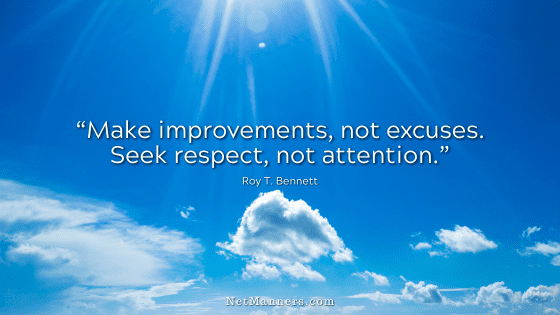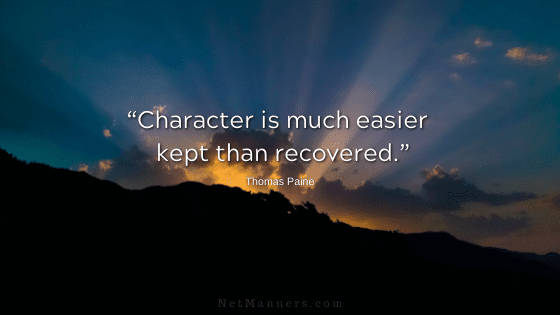Stop, Reread and Think Before You Click Send

Recently, I had the unpleasant experience of receiving accusatory emails from a couple of website visitors. What was clear is that they did not take the time to read my response to their request for advice or the article they disagreed about.
I know this because when I pointed out what I had typed to the contrary, one inquirer apologized. The other, I never heard back from…
But at that point, both had sort of embarrassed themselves simply because they reacted without reading or thinking about what I had typed. This is why I always recommend reading something out loud before replying to ensure you are, in fact, in line with the response you are replying to.
Sadly, many are so entrenched in their opinions that they genuinely have no interest in any other perspective. More so now, with many people lacking intellectual curiosity and spending too much time on social media.
How can you ever expect to learn anything if this is your approach? This is why you need to read thoroughly and respond thoughtfully.
Why Come to This Website?
It’s not uncommon for my site to be used as the “bad guy.” Someone out there uses NetM@nners or my Business Email Etiquette website as a reference to point out to someone else what they are doing incorrectly.
I’m okay with that because, in most cases, when those folks contact me for clarification, it is because they genuinely want to understand. Unfortunately, a few wish to shoot the messenger.
When a concern or question is raised more than once within a short time frame, I will use it to create a post that will hopefully help others. Specifically for those who have the intellectual curiosity to know they don’t know everything.
My purpose is to help those who are willing to learn new things that can positively enhance, in this case, their email communications. Now that you are aware of this website, you can bookmark it (Ctrl+D) for future reference when you have questions or concerns. 😉
Read, Then Clarify if Unsure
My email responses to inquiries are courteous, unemotional, straightforward, and adequately down-edited. When you down-edit, which means you are responding point-by-point, you minimize the opportunity for misunderstandings. The recipient will know specifically which of their comments yours applies to.
These recent accusations arose because the other side was first distracted by the fact that I disagreed with their approach or comment. Therefore, once they saw that, they did not take the time to read the entire email.
When you don’t take the time to read the emails you are responding to in their entirety, you risk making incorrect assumptions—and not making a positive impression. Nor are you providing an opportunity for yourself to learn something that may be helpful.
In the cases that prompted this article, assumptions were made that were not in my response. Nor is there any written evidence on this site to support their claims. Lots of assuming is going on.
Jumping to Conclusions
Not reading content in its entirety makes it easy to jump to conclusions. This causes you to risk appearing as though, simply because someone differs from you, even if ever so slightly, their point of view doesn’t matter. I would hope you would agree that it is not a good look.
You can’t then be upset when it is pointed out to you in a thoughtful manner that you misinterpreted. No one is always right. To want to be is unrealistic, don’t you think?
And, no, saying, “I may not have read your email thoroughly but…” before you type your excuse for jumping to conclusions doesn’t make your approach valid or correct. Instead, it appears that you are unable to pay attention to details or unwilling to embrace new ideas and concepts.
Don’t be an Accuser
What does it say about a person who whips off an accusatory email but doesn’t take the time to read the details about what they are complaining about? What is the best way to respond? When I encounter these situations, I try to soften the perceived disagreement by asking a valid question, one that, if answered, tends to prove my point.
For example:
Website visitor: Who made you the expert on these topics to tell me what to do?
Me: Well, I don’t make folks come to my website and read my posts or email me. I view my email etiquette websites as a form of community service that has been successfully online for decades, discussing these topics. Can you share with me another site that has an opinion to the contrary for me to review?
I try to diffuse and include a little levity to calm things down. However, the fact remains that it is your responsibility to read communications completely before responding to them. You are also responsible for responding with the correct intent and tone.
Before making accusations, be sure that what you are responding to is what the person intimated, said, or provided. If you are unsure, read their response out loud; better yet, ask them to clarify what they mean.
Then, take them at their word.
Pause Before Responding
Take the time to consider if what you are typing is apropos and accurate to what was typed by the other side. If you are in a hurry and don’t have time to read previous emails before you reply to them in haste, then don’t reply.
Wait until you have the time to send an educated, measured response. Then, you’ll save face and have to eat a lot less humble pie while probably learning a few new positive things in the process.







